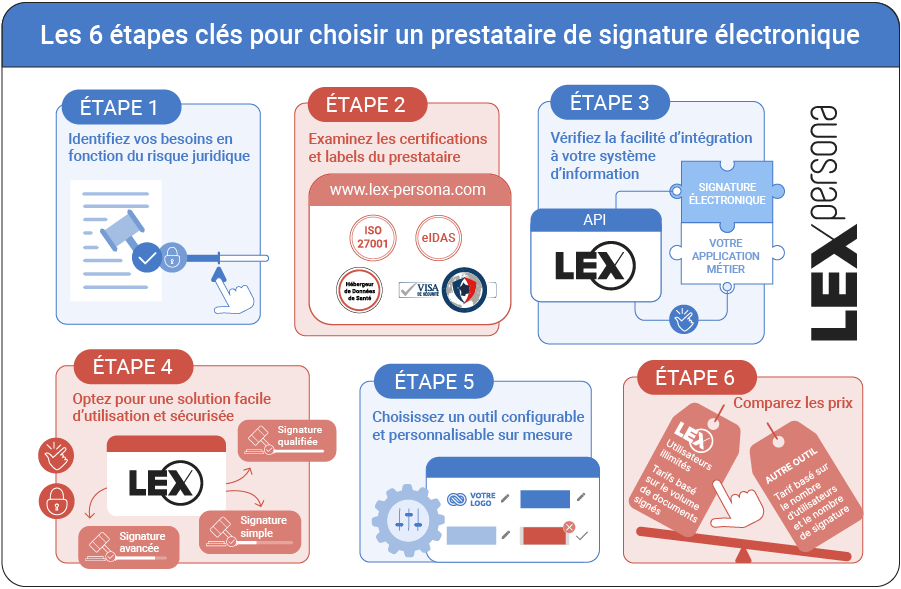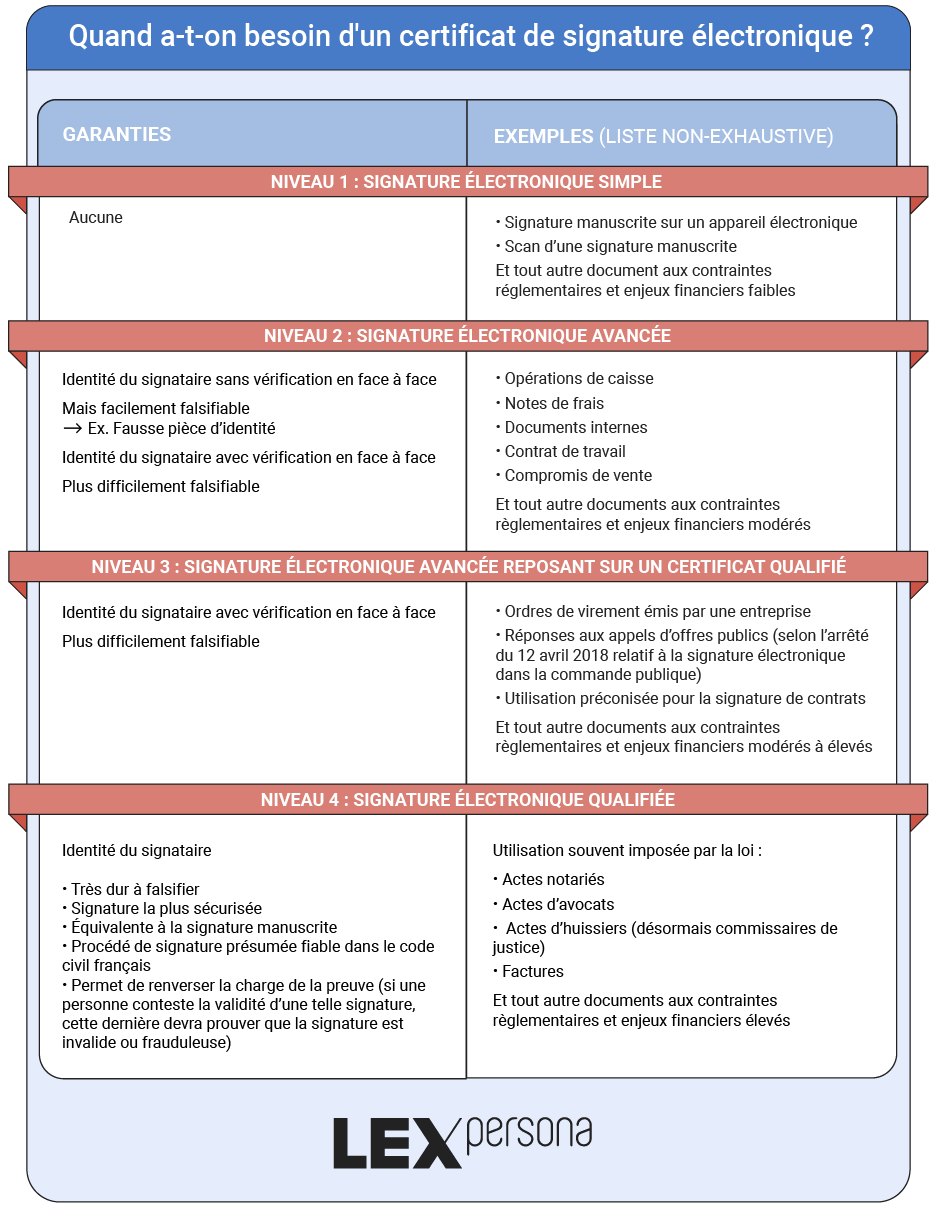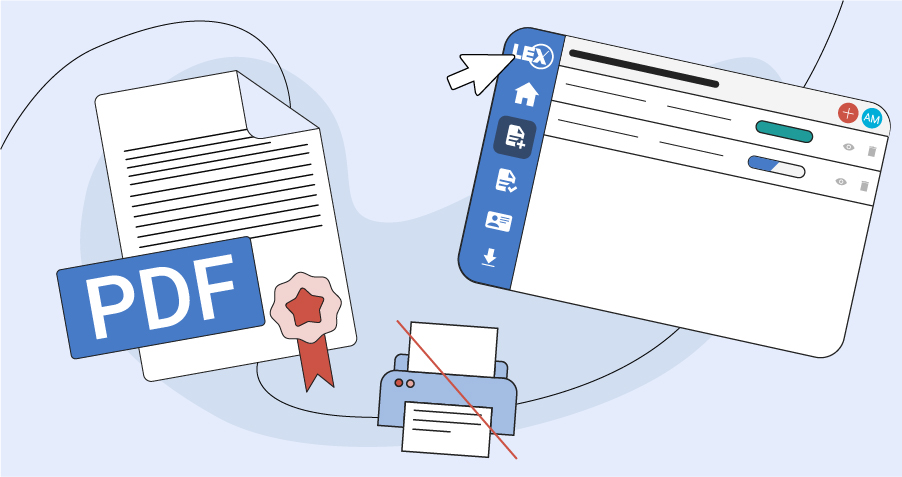Share on :
Since July 1, 2016, the eIDAS regulation has harmonized the legal value of electronic signatures throughout the European Union (EU). This regulation has profoundly transformed usage, notably by putting the so-called qualified electronic signature on an equal footing with the handwritten signature. Good news, at a time when the digitization of business processes is accelerating, when telecommuting is becoming widespread and bringing with it new ways of working in France (flex office, hybrid work, etc.). Those who don't get on board the digital transformation train risk falling behind. And in the business world in particular, the electronic signature is one of the locomotives.
But you need to be careful when choosing your electronic signature tool. Rest assured: our aim is neither to frighten you, nor to bury you under opaque legal notions. On the contrary, the details shared in this article will help you to choose the right signature level for your various documents, and a reliable service provider to make your job easier.
Teasing: the right choice is (always) the one that focuses on safety!
What are the regulations governing electronic signatures?
Several standards have gradually shaped the legal framework for electronic signatures in the EU and France. Here are the ones you need to know:
- Legal recognition of electronic signatures in France began with the European Directive of December 1999, transposed (i.e., adapted) into French law by Law no. 2000-230 of March 13, 2000. Although this law officially recognized the legal value of electronic signatures, it did not lead to their application or standardization.
- The eIDAS regulation no. 910/2014, which came into force in 2016, standardized the legal framework for electronic signatures within the European Union, reinforcing their legal validity and facilitating their adoption by businesses. It is the benchmark rule on a European scale. The eIDAS 2.0 regulation (coming into force in 2024) aims to create a unified and secure European authentication service, continuing the evolution of digital standardization within the EU.
- Article 1367 of the French Civil Code, in its 2016 version, and its implementing decree n°2017-1416 of September 28, 2017, have defined the requirements under French law for the presumption of reliability of electronic signatures. According to these regulations, only qualified electronic signatures (as defined by the eIDAS regulation) are presumed reliable.
The legal value of electronic signatures: how can compliance be guaranteed?
The eIDAS regulation defines four levels of electronic signature: simple, advanced, advanced with qualified certificate, and qualified. The value of your signature will depend on the choice of the appropriate security level, which in turn depends on the type of operations you wish to carry out. Each level offers a different degree of security and legal proof.
How do you determine the right level of electronic signature security?
It's essential to select the right level for your needs. Here's a table to help you make the right choice:
Electronic signature certificates, verification, etc.: how do you choose the right service provider to ensure the authenticity and integrity of signed documents?
A trust service provider offers electronic certification, electronic time-stamping, electronic signature preservation and verification services. Some services also offer digital identities, such as theIdentité Numérique La Poste.
There are qualified trust service providers in France, recognized as such byANSSI (Agence Nationale de la Sécurité des Systèmes d'Information). Only they can issue you with a valid electronic signature certificate and, in particular, enable you to affix qualified electronic signatures. This is the only electronic signature with a legal value equivalent to that of a handwritten signature.
Good to know: ANSSI is the supervisory body responsible for ensuring that qualified trust service providers in France comply with the requirements of the eIDAS regulation.
To choose a service provider that meets the requirements of the eIDAS regulation, you can consult the list of trusted service providers drawn up by ANSSI, which includes Lex Persona.
6 key steps to choosing an electronic signature provider

If you're a company wishing to guarantee a high level of security for your electronic signatures, the first thing you need to do is check that the service provider complies with the eIDAS regulation and national legislation. Lex Entreprise, our electronic signature solution, ticks all the boxes required by law, protecting the validity of all your transactions.
But there are other important factors to consider. Here are the main steps to follow to make an informed choice:
- Step 1 Identify your company's specific e-signature needs, such as the type of documents to be signed and the level of security required.
- Step 2 Examine the certifications and labels the service provider has obtained to assess its reliability. Lex Persona is an independent French company certified ISO 27001:2017 and HDS (Hoster of Personal Health Data), Labellisée FnTC CEV génération & vérification, Qualifiée eIDAS ETSI EN 319 421 pour l'horodatage, Certifiée ETSI EN 319 411-1 LCP et Qualifiée eIDAS ETSI EN 319 411-2 QCP-n-qscd pour la délivrance de certificats de signature électronique.
- Step 3 Step 3: Make sure your electronic signature tool integrates seamlessly with your existing information system, business processes and applications. Lex Entreprise integrates easily with our free API.
Step 4 Opt for an easy-to-use, secure solution. Lex Entreprise offers you a tool that adapts to all your uses, whatever the level of security you require. We offer the usual 3 levels of security (simple, advanced and qualified), so you don't have to multiply your electronic signature tools. - Step 5 Choose a tool that integrates with your user journey. Lex Entreprise offers a tailor-made user experience, enabling complete customization of the interface, metadata and dashboard. This approach enables your customers to sign directly on your own electronic signature platform, reinforcing your brand identity and presence throughout the signature process.
- Step 6 Compare the prices of different providers. Unlike many solutions, we offer pricing based on the volume of documents signed, with an unlimited number of users. In this way, customers pay only for the signature credits they need, offering flexibility and adaptability to the specific requirements of each company. This formula enables efficient cost management, adapted to the effective use of electronic signatures.
To sum up, when choosing an electronic signature solution that complies with legal requirements, don't forget to :
- Select the right level of security for your needs,
- Choose a trusted service provider,
- Check system integration, ease of use and tool safety,
- Compare rates to choose a solution that suits your budget.
Register for our next webinar. ⬇️








